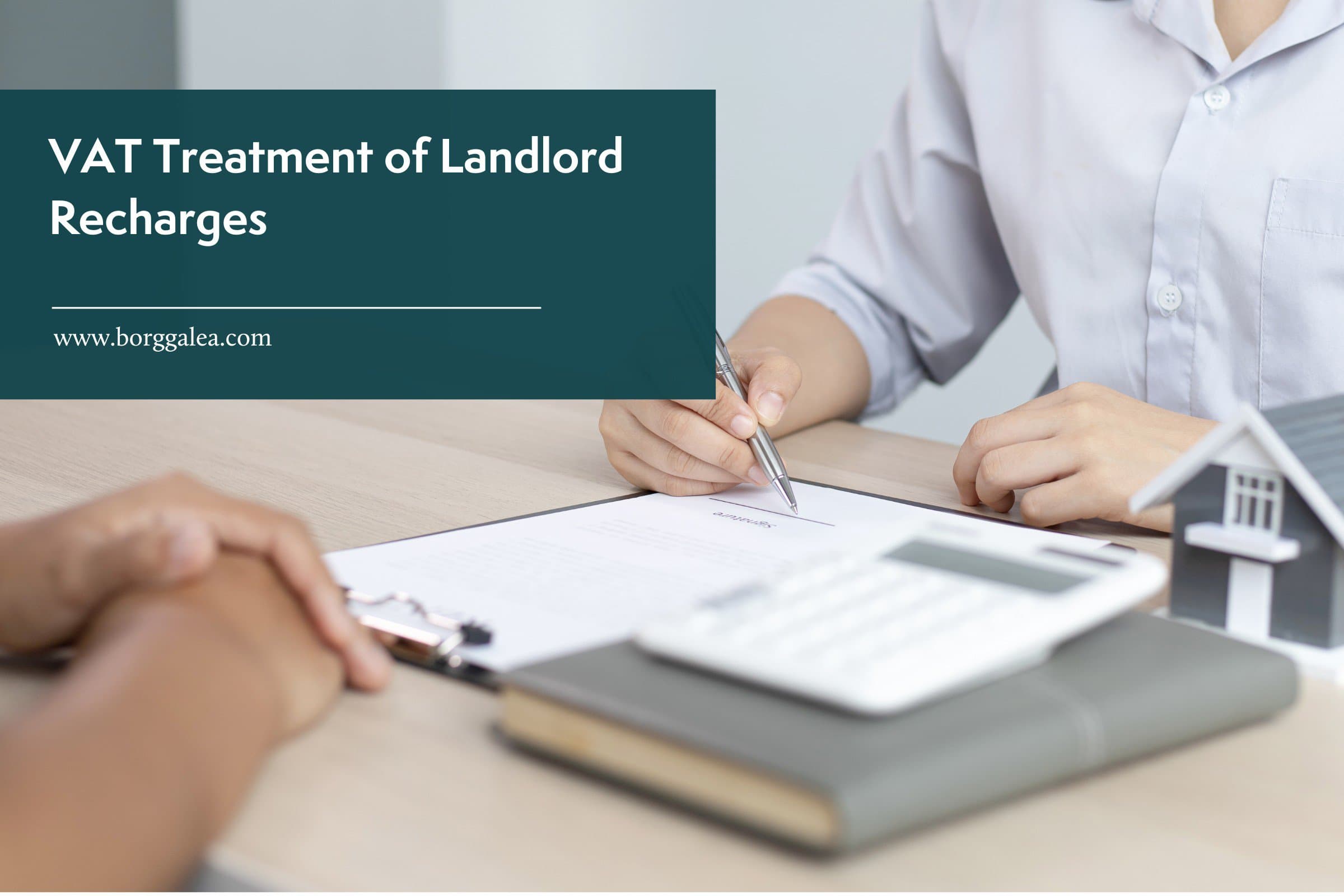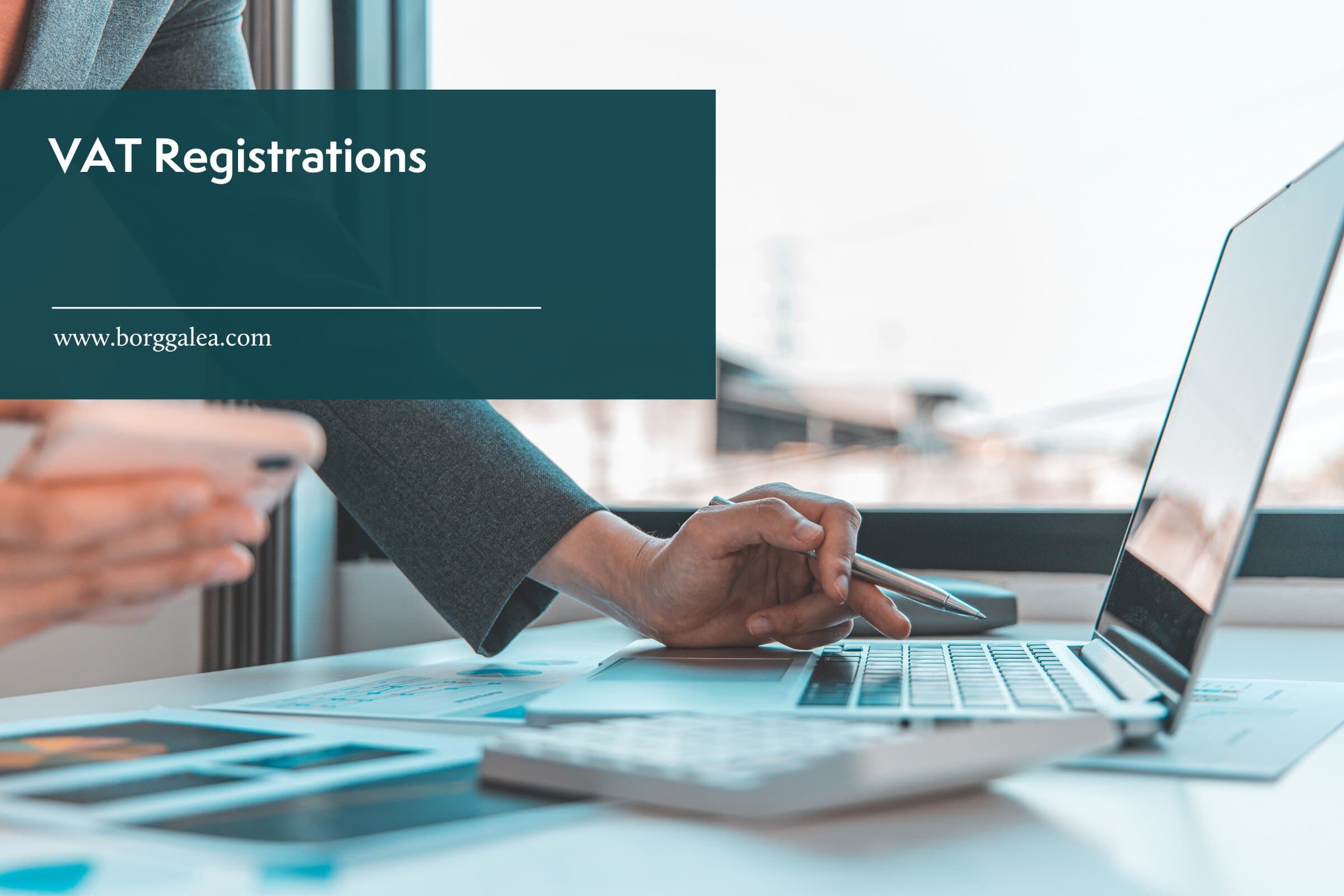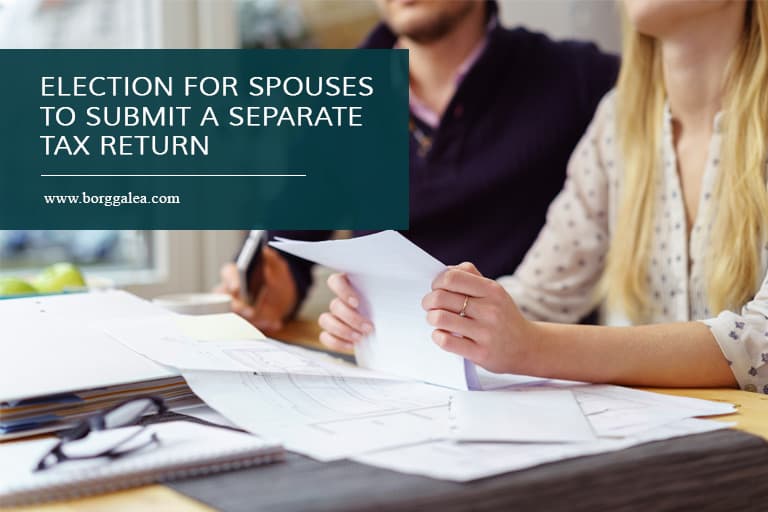In practice, it is common for landlords to recharge tenants for expenses such as water, electricity, cleaning, and maintenance. These recharges often accompany rental payments and may appear straightforward, but their VAT treatment can differ significantly depending on how they are structured.
Understanding when such recharges are part of the rent — and thus potentially exempt from VAT — or when they constitute separate taxable supplies is crucial for compliance and to avoid costly errors.
Legal Framework
The Value Added Tax Act (Chapter 406 of the Laws of Malta) transposes the EU VAT Directive (Directive 2006/112/EC) into Maltese law.
Under Article 5 of the VAT Act, VAT is chargeable on the supply of goods or services made for consideration within Malta by a taxable person acting as such.
A landlord who leases immovable property and recharges tenants for utilities must assess whether:
- the recharge forms part of an exempt supply of letting of immovable property (Item 12 of Part Two of the Fifth Schedule to the VAT Act), or
- it constitutes a separate taxable supply of goods (such as water or electricity) or services (such as cleaning or maintenance).
The VAT Directive’s Article 47 also provides that services connected with immovable property are taxable where the property is located — meaning that Maltese VAT rules apply where the property is in Malta.
The Principle of Economic Reality
The European Court of Justice (CJEU) has repeatedly held that the economic and commercial reality determines whether supplies are to be treated as single or multiple supplies.
Key judgments include Field Fisher Waterhouse LLP (C-392/11) and Wojskowa Agencja Mieszkaniowa w Warszawie (C-42/14), which established that:
- If a landlord merely passes on utility costs without any mark-up, and tenants are billed according to actual consumption (e.g. through separate meters), those supplies should be treated as separate and independent from the lease.
- Conversely, if the utilities are not individually measurable, or if the cost forms part of a fixed rental package, then the recharge forms part of the overall exempt rental consideration.
This approach is echoed in the VAT Explained text, under “Disbursements, Recharges and Intercompany Charges”, which stresses that the decisive factor is whether the landlord acts in his own name (resupplying the utilities) or as a mere intermediary on behalf of the tenant.
Maltese Application
(a) Residential Lettings
The letting of immovable property used for residential purposes is exempt without credit under the Fifth Schedule to the VAT Act.
Accordingly:
- where utilities (water, electricity) are included in the rent and there is no separate metering, the entire supply remains exempt;
- where utilities are measured and charged separately, the landlord is regarded as making a taxable supply of goods — typically chargeable at the standard VAT rate of 18%.
(b) Commercial Lettings
For commercial premises, the lease itself is normally taxable when the landlord is registered under Article 10.
In such cases:
- both the rent and any recharged utilities or services (such as cleaning, common area maintenance, or security) are subject to VAT at the same rate;
- where the landlord is not VAT-registered (for example, qualifying under Article 11), no VAT is charged, but the landlord equally cannot recover input VAT on related expenses.
Recharges vs. Disbursements
The distinction between a recharge and a pure disbursement is essential:
- A recharge occurs when the landlord purchases goods or services in his own name and passes the cost to the tenant — this is subject to VAT.
- A disbursement occurs when the landlord simply pays an expense in the tenant’s name and on the tenant’s behalf — this is outside the scope of VAT, provided it meets the disbursement criteria (the cost does not belong to the landlord, and the landlord is reimbursed exactly).
For example:
- A landlord who receives and pays an ARMS (Water & Electricity) bill in their own name and then recharges tenants is resupplying utilities, subject to VAT.
- If, instead, the utilities are billed directly to tenants, the landlord acts only as a payment facilitator, and no VAT is due on the reimbursement.
Practical Considerations for Landlords
Landlords should:
- Review lease agreements to ensure clarity on whether utilities and services are separate or included in the rent.
- Maintain separate invoicing for utilities if they wish to treat them as taxable supplies distinct from the rental.
- Check VAT registration thresholds to determine whether Article 10 registration is required.
- Avoid VAT leakage by ensuring the correct categorisation of recharges and the right to input VAT deduction.
Conclusion
The VAT treatment of landlord recharges depends on contractual terms, billing practices, and the degree of separability between rent and ancillary supplies.
As a general rule:
- Recharges based on actual consumption (with metering or identifiable costs) are taxable.
- Inclusive or fixed-charge arrangements tied to the rent are generally exempt.
Landlords and property managers are therefore advised to structure lease agreements with VAT in mind and to seek professional advice where the facts are ambiguous — particularly in mixed-use properties or where recharges involve multiple tenants.





